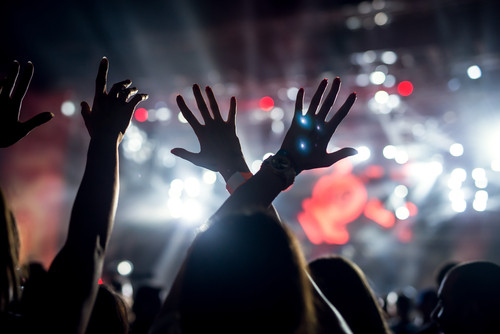Popular Reads
Top Results
Can't find what you're looking for?
View all search resultsPopular Reads
Top Results
Can't find what you're looking for?
View all search resultsWhat does the $70 million sale of Napster say about the future of the music industry?
Change text size
Gift Premium Articles
to Anyone
A
s the coronavirus pandemic has left an estimated multibillion-dollar hole in ticket sales, big players in the music industry are increasingly turning to the digital realm to host immersive live performances.
That is notably the case of British technology company MelodyVR, which hopes to consolidate its position in the music sector thanks to the recent $70 million acquisition of Napster.
MelodyVR, which is described as "the only licensed VR music platform", is taking over Rhapsody International, which does business as Napster and is owned by Nasdaq-listed RealNetworks.
The purchase price of $70 million comprises $15 million in cash, $11 million in MelodyVR shares, as well as $44 million in payment obligations to the multiple music publishers and record labels that are on Napster's books.
While it now operates as a music-streaming platform with 3 million paying subscribers, Napster initially found fame as a website that allowed users to access each other's MP3 audio files.
Lawsuits from the music industry and artists like Dr Dre and Metallica ultimately pushed the company to file for bankruptcy in 2002. On-demand streaming service Rhapsody International acquired Napster in 2011.
Though Napster and MelodyVR will continue to operate as independent businesses in a near future, this acquisition lays ground for "the creation of a unique music platform that will offer both immersive live performances and music streaming – for the first time ever".
"MelodyVR's acquisition of Napster will result in the development of the first ever music entertainment platform which combines immersive visual content and music streaming. For music fans today, live and recorded music are intrinsically linked. We are as keen to see our favorite artists perform live as we are to listen to their albums," MelodyVR CEO Anthony Matchett said in a statement.
"Our purchase of Napster, one of the music industry's original disruptors, is born out of our wish to deliver the world's foremost music experience, available seamlessly across audio and visual media and in turn presenting a truly next generation music service."
Read also: Culture ministry, Irama Nusantara team up to digitize Indonesian music
The burgeoning livestreaming music sector
Launched in 2018, MelodyVR has since delivered virtual shows from a diverse range of musicians, including Post Malone, KISS, Lewis Capaldi, Kesha, Khalid, John Legend, Panic! At the Disco and Kelly Clarkson.
Although the London-based company made a £15 million loss (around $19.7 million) in 2019, MelodyVR reportedly experienced a 1000 percent increase in downloads for its app through the pandemic.
This encouraging figure testifies to a surge in interest from artists and industry professionals to offer music experiences at the intersection between gaming and live performances.
In April, American rapper Travis Scott held a virtual concert on Fortnite to present his new "Astronomical" single, attracting some 12.3 million concurrent players in the widely popular video game.
More recently, The Weeknd drew over more than 2 million total unique viewers on TikTok for a live, interactive virtual concert, dubbed "The Weeknd Experience", which premiered on August 7.
While the phenomenon is not new, the coronavirus pandemic rapidly accelerated changes that were long overdue in the live music industry. Time will tell if virtual events will remain popular when in-person concerts and music festivals will make their return.











